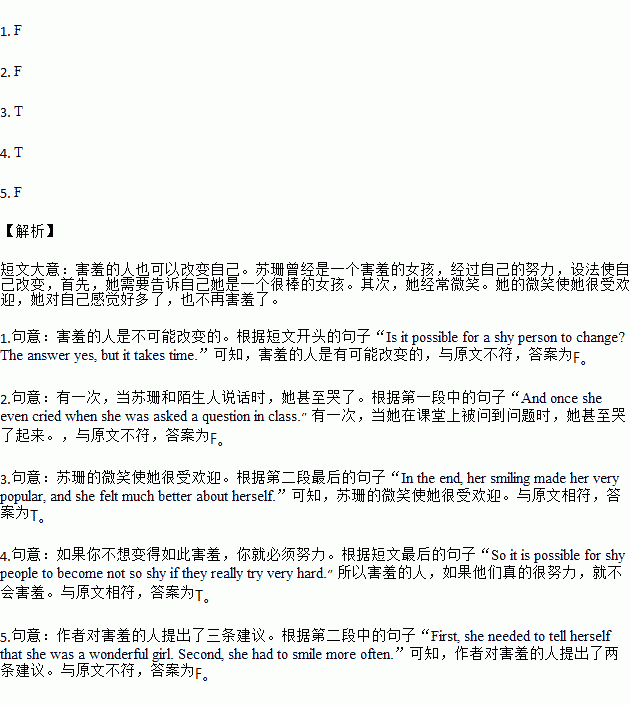题目内容
Is it possible for a shy person to change? The answer yes, but it takes time. Take Susan for example. She used to be very shy in the primary school. When she talked to teachers and strangers, she would feel afraid. In fact, she was so afraid that she would not look people in the eye. And once she even cried when she was asked a question in class.
Things began to change when Susan decided to solve this problem. She knew she had to do several things. First, she needed to tell herself that she was a wonderful girl. Second, she had to smile more often. When she was invited to a party, for example, she would simply smile if she didn’t know how to talk to other people. She tried really hard for a long time. In the end, her smiling made her very popular, and she felt much better about herself.
So it is possible for shy people to become not so shy if they really try very hard.
Judge the following sentences true(T) or false(F) according to the passage
1.It is not possible for shy people to change.
2.Once Susan even cried when she talked to a stranger.
3.Susan’s smile make her very popular.
4.If you don’t want to become so shy, you have to try hard.
5.The writer gave three pieces of advice for a shy person to change.
 名师点睛字词句段篇系列答案
名师点睛字词句段篇系列答案
